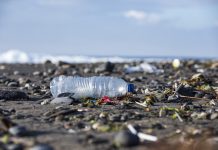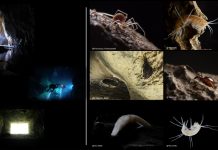Open Access Government produces compelling and informative news, publications, eBooks, and academic research articles for the public and private sector looking at health, diseases & conditions, workplace, research & innovation, digital transformation, government policy, environment, agriculture, energy, transport and more.
Home 2024
Archives
Training and citizen engagement to tackle soil health challenges
The ECHO project approach in tackling soil health challenges through soil literacy and citizen engagement.
Echo’s citizen science initiatives for soil literacy take off
Led by ECHO partners, we hear about citizen science initiatives that aim to improve soil literacy and foster sustainable practices through workshops and community engagement.
All hands on deck for ocean-based CO2 removal research
Prof. Dr. Katja Fennel, Chair of the Department of Oceanography, Dalhousie University, Halifax, Nova Scotia, Canada, argues that we need all hands on deck for ocean-based CO2 removal research.
Supply chain waste in the pharma industry
The pharmaceutical industry faces significant challenges with supply chain waste, affecting both environmental sustainability and economic efficiency. Jim McGuire and Deborah McElhone from CPI navigate the complex issue here.
‘Remember, remember the month of November’: Ahead of COP29
Professor of International Relations at the University of Leeds, Richard Beardsworth, looks with concern to this November’s COP29 and the US elections. The issue is climate leadership.
AI to create personalised health responses to air pollution
Professor Fan Chung, Professor Christopher Pain and Claire Dilliway from Imperial College London, walk us through the exciting use of artificial intelligence to create personalised health responses to air pollution and invite you to get involved.
Building healthy sandy soils in agricultural landscapes
Lynette Abbott and Hira Shaukat from The University of Western Australia, provide insights into research on enhancing health in sandy soils.
Modelling biodiversity is an essential part of its protection
Professor Guillaume Blanchet from Université de Sherbrooke considers why modelling biodiversity is an essential part of protection and how we can model biodiversity better.
Sustainability transformations in marine governance in Sweden via social learning
Dr. Angelo Jonas Imperiale and Dr. Uta Wehn describe the MISTRA C2B2 programme’s unique approach to promoting sustainability transformations in Sweden’s marine governance through social learning in Living Labs.
Marine plastic litter vs clean and living water
Marine plastic pollution is a global crisis with increasing impacts on the environment, marine life, and human health. Multinational and national organisations are working to develop solutions that are accepted by all stakeholders connected to the marine environment and fishing industry.
Emissions from building and construction can be halved with current technologies and practices
Filip Johnsson and Ida Karlsson from Chalmers University of Technology argue that building and construction emissions can be halved with current technologies and practices in place.
Decarbonizing the textile industry: How Ever Dye is revolutionizing dyeing processes
While the textile industry is continuously evolving and becoming more technologically advanced, it still relies on highly polluting and energy-intensive processes. Victor Durand, Head of Operations at Ever Dye, shares the company’s commitment to changing this and decarbonizing the textile industry.
A traditional ecological knowledge summit
The Global Center for Climate Change and Transboundary Waters (GCTW) cohosts a Traditional Ecological Knowledge Summit (1), as Gail Krantzberg (2), Peter Czajkowski, Dawn Martin-Hill, Rohini Patel, Hiliary Monteith, and Drew Gronewold explain.
Australia’s soils have sent us a warning: We should listen
Praveena Sridhar, the CTO of the Save Soil Movement, believes that Australia’s soil has been signalling a message to us, and as a result, we ought to pay attention.
Impact of student funds and fellowships on climate change research and human well-being
Sophie Farmani, Assistant Professor, Arts, Communications and Social Sciences Department, at the University Canada West, charts the positive impact of student funds and fellowships on climate change research and human well-being in the Canadian context.
The hidden climate cost: Food loss, waste, and greenhouse gas emissions
Professor Gordon Price from Dalhousie University and Professor Grant Clark from McGill University study the hidden climate change costs of food loss and waste in Canada. Here, they highlight the need for greater cooperation and data sharing.
PETRI-MED: Enhancing marine phytoplankton diversity monitoring in the Mediterranean
Preserving biodiversity is crucial for sustaining life on Earth. Unfortunately, it is facing growing threats. Marco Talone and the PETRI-MED Team discuss their objectives for the PETRI-MED project and explain why it is urgently necessary.
Environmental weathering transforms plastic pollution
The prevalence of plastics in our daily lives is reflected by their ubiquity in nature. Jeffrey M. Farner from the FAMU-FSU College of Engineering, details how environmental weathering transforms plastic pollution.
Protecting subterranean ecosystems for the wellbeing of surface environments and humanity
Stefano Mammola, a researcher at the Italian National Research Council and coordinator of the Biodiversa+ project ‘DarCo’, emphasizes the importance of better incorporation of subterranean biodiversity in conservation agendas.
A comprehensive approach to integrated one health surveillance and response
Surveillance data plays a crucial role in understanding and responding to emerging infectious diseases; here, we learn why adopting a One Health surveillance approach to EIDs can help to protect human, animal, and environmental health.

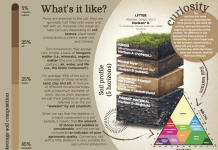
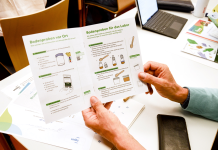


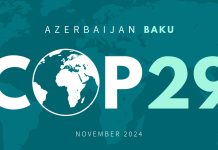
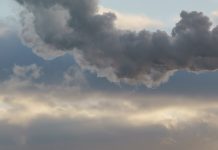


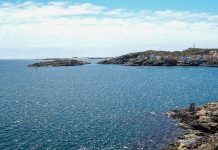
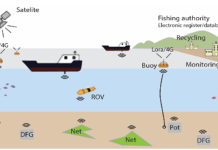


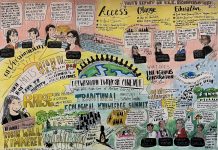
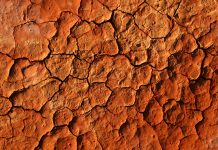

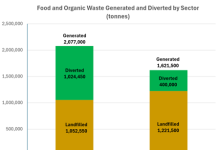
![PETRI-MED: Enhancing marine phytoplankton diversity monitoring in the Mediterranean 1-day RGB composite image of the Mediterranean Sea as observed by Sentinel 3A and 3B on July 14th, 2022. ©EUMETSAT [2024] phytoplankton](https://www.openaccessgovernment.org/wp-content/uploads/2024/08/PETRI_MED_image-218x150.png)
